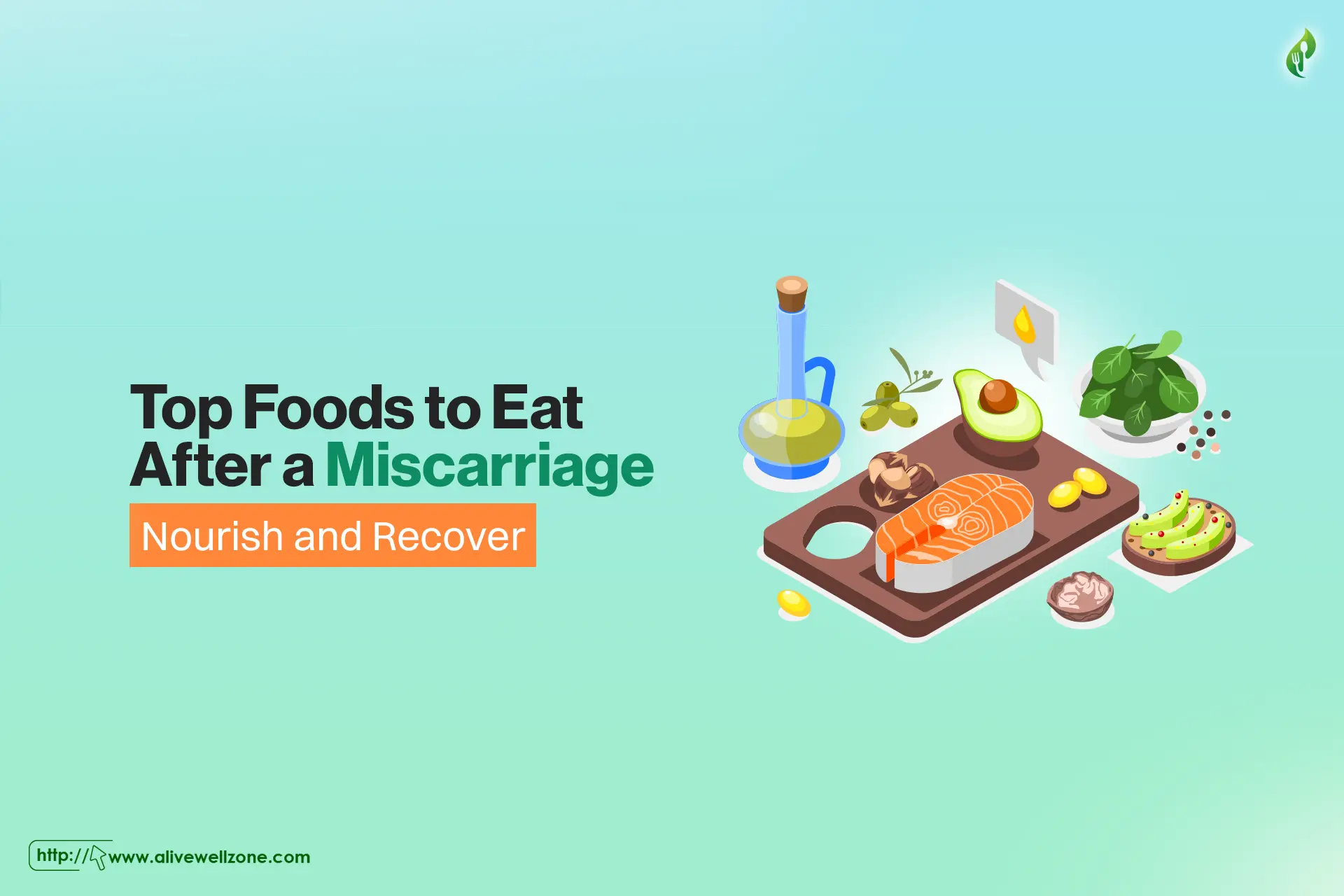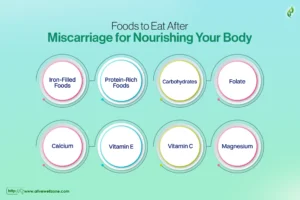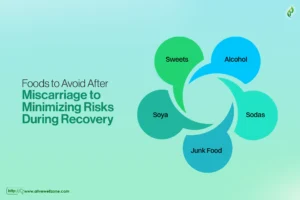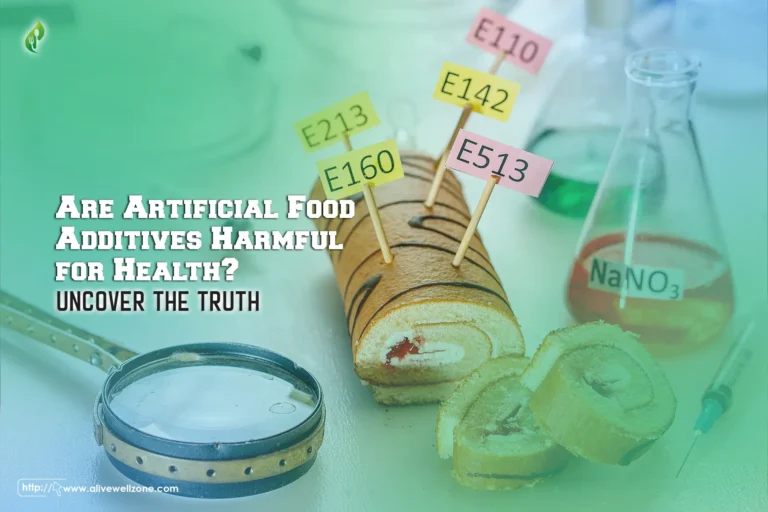
Last Updated on November 8, 2024 by Helena Akter
It can feel isolating and confusing after a miscarriage. It’s normal to feel lost, but you’re not alone! Your body is working hard to heal, and to support it, you need the right foods to eat after a miscarriage.
After a miscarriage, you should eat iron-filled foods, protein, complex carbs, folate, calcium, vitamin E, vitamin C, and magnesium. They can help you heal faster, and gain energy. Plus, stay hydrated with water and herbal teas to help recovery.
We’ll also explore foods you might want to limit during this time. Most importantly, you’ll know when to get professional help during your healing.
Key Takeaways
- Foods to Eat: When eating after miscarriage, focus on healthy foods that give your body what it needs to heal. It means plenty of iron, protein, whole grains, fruits, and veggies. Don’t forget vitamins like folate and calcium!
- Stay Hydrated: Drink plenty of water throughout the day. Juices, soups, and broths can also help you stay hydrated. Some herbal teas, like red raspberry leaf, may offer extra benefits.
- Foods to Avoid: Sugary treats, junk food, and alcohol can slow healing. It’s best to limit these and focus on nourishing foods. Talk to your doctor about soy products too.
- Get Professional Support When Needed: Everyone grieves differently. If you’re feeling overwhelmed, anxious, or just not yourself, reach out for professional help. A therapist can be a great resource during this difficult time.
Importance Of Nutrition After Miscarriage
Many women, around 85% according to the American Pregnancy Association, have healthy pregnancies after a miscarriage. While it’s a difficult time, proper nutrition can support your body and prepare it for future pregnancies.
Here’s how —
- Faster Healing: Nutrient-rich foods help your body repair tissues and bounce back quicker. They supply the vital elements your body needs for recovery.
- Emotional Support: What you eat can affect how you feel. Healthy choices can improve your mood and help you cope with the emotional side of miscarriage.
- Energy Increase: After a miscarriage, you might feel drained and exhausted. Eating well gives you long-lasting energy to help you through this challenging time.
- Refill Your Tank: Pregnancy and miscarriage can deplete your body’s nutrients. When you eat a balanced diet, it helps to restore your overall health, now and later.
- Stronger Immune System: A healthy diet packed with vitamins and antioxidants helps fight off infections, which is important during recovery.
Foods to Eat After Miscarriage for Nourishing Your Body
Following a miscarriage, taking care of yourself is key. Eating the right foods can help you feel better physically and emotionally. Here are food after miscarriage to add to your plate.

Iron-Filled Foods
Iron loss is a common concern after miscarriage, especially with significant bleeding. So, it’s a simple math that you need iron-packed foods.
They can help combat fatigue and low energy often felt during this time. Also, they play a vital role in recovery. Here are some foods rich in iron you can consider —
- Red meat
- Seafood
- Poultry
- Beans
- Eggs
- Lentils
- Dark leafy greens
- Whole grains
- Dark chocolate
- Seeds and nuts
Important Note: There are two types of iron —
- Heme iron: It’s found in animal sources and our body can readily absorb it.
- Non-heme iron: It’s also found in plant sources. You should include both types in your diet for the most benefit!
Protein-Rich Foods
Protein plays a vital role in tissue repair and muscle rebuilding. It’s vital for a faster recovery after a miscarriage. Plus, protein helps combat fatigue and weakness, which are common after pregnancy loss.
So, you must include enough protein in every meal. Here, you have excellent choices —
- Lean meats
- Fish
- Eggs
- Dairy products
- Beans
- Lentils
- Nuts
Carbohydrates
Why do we need carbohydrates? Well, it’s our body’s primary source of energy. See, following a miscarriage, your body loses energy and you feel fatigued. Now, carbs provide a quick and readily available energy supply to help rebuild these reserves.
Additionally, complex carbohydrates play a role in brain function and can even improve mood. And it really helps during this challenging time. Because research shows many people grieve after a miscarriage.
Hence, you better focus on complex carbs like —
- Whole grains (brown rice, quinoa)
- Whole-wheat bread
- Pasta
- Fruits
- Vegetables
In contrast to simple carbs found in sugary treats, these provide sustained energy.
Folate
Folate, a key B vitamin, helps in healing after a miscarriage. In fact, Folate helps your body repair tissues and build new red blood cells. They’re both important for recovery.

Here’s where you can find this potent nutrient —
- Watercress
- Mung beans
- Chinese flowering cabbage
- Dried seaweed (nori)
- Red kidney beans are naturally rich sources of dietary folate
Important Note: Some people have variations in a gene called MTHFR that can affect how your body absorbs folate. So, talk to your doctor about getting tested for this gene variant. If you have a variant, they might recommend a different type of folate supplement like methylfolate for optimal benefits.
Calcium
Calcium isn’t just for strong bones! It also helps your muscles and nerves function properly and helps blood clotting. After a miscarriage, your body may lose some calcium, especially if you experience blood loss.
Here’s how you can get the calcium you need to feel your best —
- Dairy Sources: Yogurt, milk, and cheese are all rich sources of calcium. For example, one cup of low-fat yogurt packs a whopping 448 milligrams!
- Leafy Green Surprise: Kale, spinach, tofu, and collard greens are loaded with calcium. A 100-gram serving of kale provides 254 milligrams!
- Bonus Tip: Include nuts and seeds in your diet for an extra calcium kick.
Vitamin E
Miscarriage can cause inflammation, making healing harder. Vitamin E, a powerful antioxidant, can help fight this! In fact, studies suggest Vitamin E can promote tissue repair and keep your immune system strong.
Now, where can you find it? Look for vegetables oils such as —
- Sunflower
- Olive
- Rice bran oil
Plus, there are other sources like —
- Sunflower seeds
- Almonds
- Hazelnuts
Vitamin C
Miscarriage puts stress on your body, and vitamin C can help you! This antioxidant tackles inflammation and boosts your immune system. In addition, it helps in tissue repair. So, it’s perfect for healing your uterus and cervix.
So, you have foods loaded with Vitamin C are —
- Oranges
- Grapefruits
- Raisins
- Berries
- Dates
- Kiwi
- Papaya
- Bell peppers
- Leafy greens (Spinach, Kale, etc.)
Magnesium
Magnesium is a mineral that does two jobs after a miscarriage. It helps reduce inflammation, making healing easier. It may even lessen your feelings of depression, which are common after loss.
Some foods can supply with ample magnesium, such as —
- Cocoa Powder: You can sprinkle some on yogurt or fruit for a delicious boost.
- Pumpkin Seeds: Enjoy pumpkin seeds as a snack or add them to salads.
- Nuts: Almonds, pine nuts, and cashews are all great choices.
- Quinoa: This protein-packed grain is also rich in magnesium.
Adding these tasty foods to your diet can help your body heal physically and emotionally after a miscarriage.
Hydration and Herbal Teas After a Miscarriage
Staying hydrated is vital for recovery after a miscarriage. Proper hydration and certain herbal teas can nourish the body and promote healing.
Water
After a miscarriage, you must stay hydrated. It’s vital for your body’s healing process. In fact, all of us need to stay hydrated to avoid dehydration’s effects.
Now, drinking plenty of water helps your body repair itself post-miscarriage. Plus, it restores your vital nutrients and fluids.
You can also increase your fluid intake with other hydrating options like juices, soups, stews, and broths.
Herbal Tea
Certain herbal teas can be comforting and provide additional benefits during this time. Dandelion Root, Nettle Leaf, and Red Raspberry Leaf are rich in iron and vitamins. Hence, it helps to nourish your body.
Here are some herbal teas you can try —
- Comfrey Tea: It supports your healing and reduces your inflammation.
- Oatstraw Tea: This one supports your nourishment and provides a calming effect on the nervous system.
- Red Raspberry Leaf Tea: It’s a natural uterine tonic that promotes your recovery.
- Reishi Tea: It can support your body by strengthening your reducing inflammation and adrenal system.
Herbal Tinctures for Incomplete Miscarriage
If your miscarriage hasn’t fully passed on its own, some herbal tinctures may be helpful. These concentrated herbal extracts, like —
- Dong Quai
- Partridge Berry
- Ladies Mantle
- Reishi
- Oak Bark
- Oat Seed
- Raspberry Leaf
They’re packed with vitamins and minerals. They work together to —
- Nourish your body during this time
- Help balance your hormones after the miscarriage
- Support your nervous system as you heal emotionally
- Improve muscle tone in your uterus
- Strengthen your uterus to complete the miscarriage naturally
Foods to Avoid After Miscarriage to Minimizing Risks During Recovery
After a miscarriage, focusing on healthy foods can support your body’s natural healing process. Here are some things to limit —

Sweets
Candies, pastries, and sugary drinks with a high glycemic index can cause blood sugar spikes. These spikes can disrupt healing and make you feel worse. So, choose fruits and whole grains instead, as they provide sustained energy.
Alcohol
While it might seem comforting, avoid heavy drinking. Alcohol can interfere with your body’s recovery and potentially impact future fertility. In fact, a big study found women who drank a lot (more than 2 glasses of wine a week) took longer to get pregnant.
Sodas
New research suggests that sugary drinks (sodas, juices) – for you or your partner – can lower your chances of getting pregnant. So, you better focus on the hydration options we talked about earlier.

Thus, you’ll be able to keep your blood sugar stable, which can help recovery.
Junk Food
Craving greasy food is normal after a miscarriage, but don’t make it a habit. See, junk food fills you up without giving your body the nutrients it needs to heal.
That’s why you need to eat healthy meals packed with vitamins and minerals.
Soya
It’s best for you to limit soy products after a miscarriage. That’s because they contain estrogen. Remember, hormonal balance is important for your recovery. Thus, it’s wise to talk to your doctor about how much soy is right for you during this time.
When to Ask for Professional Guidance After a Miscarriage?
Everyone grieves differently after a miscarriage. There’s no right or wrong way to feel, and there’s no set time for healing. But sometimes, sadness can turn into something bigger, like anxiety or depression.
Here are some signs that might mean it’s time to talk to a professional —
- Overwhelming sadness or worry
- Changes in eating or sleeping
- Loss of interest in things you used to enjoy
- Pulling away from friends and family
- Bottling up your emotions
- Struggling with daily tasks
If you’re experiencing any of these signs, talking to a therapist or counselor can be a huge help.
Final Words
We understand it’s a difficult time. Miscarriage can leave you feeling emotionally and physically drained. But remember, you’re not alone! Many women experience miscarriage, and your body is capable of healing.
We focused on how proper nutrition can support this process. And showed you the foods to eat after a miscarriage. By eating nutrient-rich foods and staying hydrated, you can give your body the support it needs to recover.
Remember, there’s no right or wrong way to grieve. If you’re struggling emotionally, don’t hesitate to seek professional help. With time and support, you’ll heal from this experience.
FAQs
How to recover fast after a miscarriage?
To recover fast after a miscarriage, focus on hydration, nutritious eating, light exercise, and adequate sleep. Consider new activities like boxing for emotional release and joy. Avoid spicy foods due to potential antibiotic use and gastritis risk.
Is it Ok to have spicy food after miscarriage?
No, it’s not ok to have spicy food after miscarriage. Spicy foods may interact with antibiotics post-miscarriage, potentially increasing gastritis risk. It’s best to avoid them during recovery for better digestive health.
How can I maintain a healthy body after a miscarriage?
You can maintain a healthy body after a miscarriage by taking prenatal vitamins, eating a balanced diet rich in fruits and vegetables, and reducing sugar intake. Drink 6 to 8 glasses of fluids daily, limit caffeine and alcohol, and prioritize rest for optimal recovery.
Should I continue taking prenatal vitamins after miscarriage?
Yes, you should continue taking prenatal vitamins after miscarriage. These vitamins, especially folic acid, support overall health and can help prevent birth defects in future pregnancies.
What to eat after miscarriage to clean womb?
You can eat a diet rich in vegetables, fresh fruits, and plenty of fluids to clean your womb after a miscarriage. This nutritious approach supports recovery and helps cleanse the womb naturally. Prioritize hydration and avoid processed foods for optimal healing.







